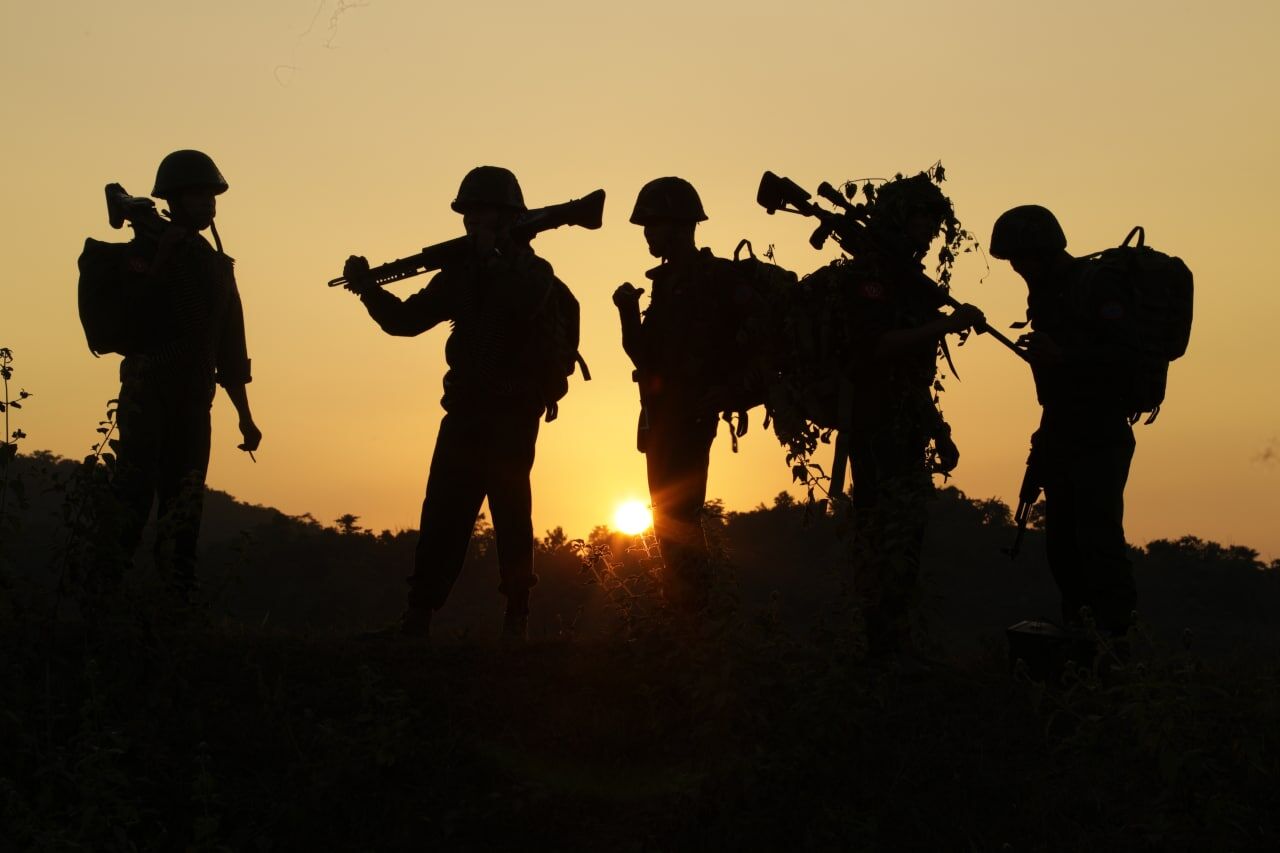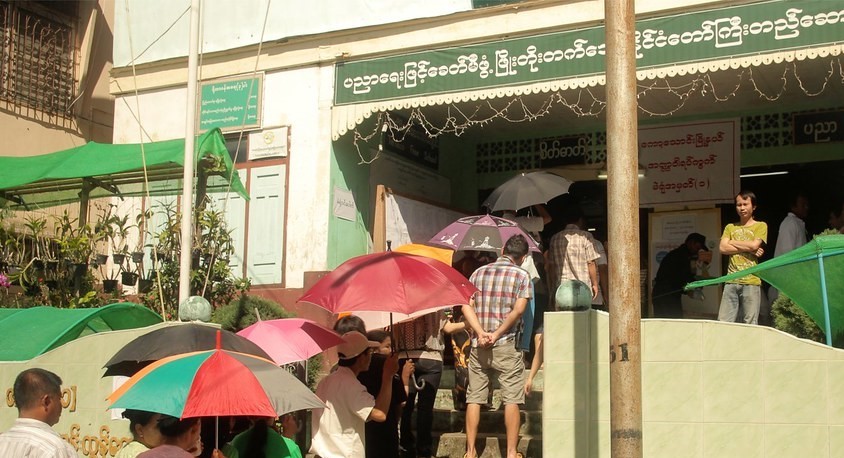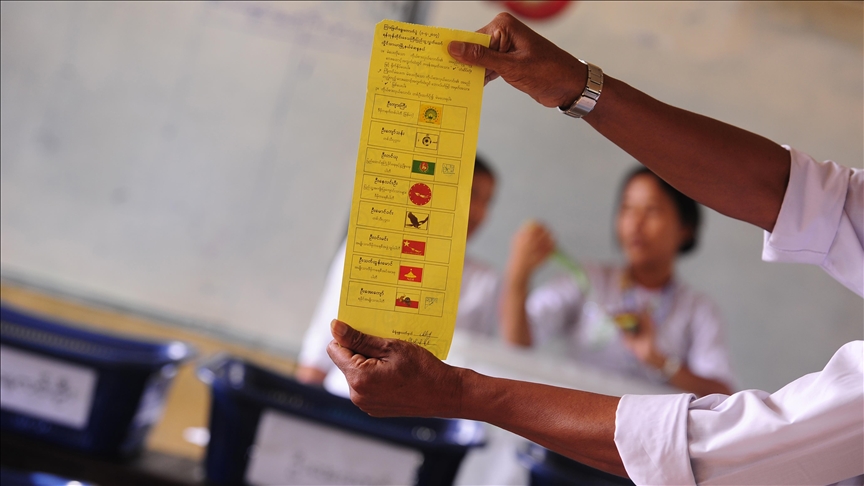CNI Article
By- Chit Min Tun
13 May 2025
In Myanmar, on February 1, 2021, the National League for Democracy (NLD) government was overthrown by the Myanmar Tatmadaw and the Myanmar Tatmadaw declared a state of emergency.
The reason why the state of emergency was declared was because the NLD government was trying to form a government without solving the vote list dispute in the 2020 general election, said the Myanmar Tatmadaw.
Myanmar young people became involved in the power struggle and armed conflicts broke out in a big way nearly all over the country.
The armed conflicts have led up to instability throughout the country, security concerns, a weakening of the rule of law, restrictions on freedom of expression and movement, declines in economic, social, educational and health conditions, a scarcity of employment opportunities, rising prices, and inflation.

The worst is the disintegration of national unity among citizens, the decline in the ability to defend “Our Three Main National Causes” (Non-disintegration of the Union, Non-disintegration of national solidarity and Perpetuation of sovereignty), and the gradual erosion of the country’s sovereignty.
To rebuild these conditions, it is necessary to create (1) a stable country, (2) a reduction in armed conflicts, (3) a stable government, (4) a civilian government, (5) strengthening internal unity, (6) good relations with regional countries, and (7) good civil-military relations. However, as Myanmar is currently being run by a military-led administration that is not an elected government, there may be questions about how to rebuild them.
we can think of three possible solutions to this question: (1) a transitional government or an interim government that is acceptable to all can be formed through dialogue; (2) a government can be formed by one side that wins the current war; (3) a coalition government or an elected government can be formed through elections.
Of these three points, because the first and second are complex and difficult, they can't be successful. So, Myanmar is currently facing many of the disasters . That's why there is only the third point left to think of.
Therefore, if you ask whether everything will be okay if we hold elections to overcome the general crisis facing Myanmar, we must understand that elections are just a step towards transition and will not make everything okay and smooth. In this case, I think we need to consider two basic points: what will happen if the election cannot be held, and what will happen if the election can be held.

First, let's consider what would happen if the election were not held.
If the election were not held, (1) Myanmar would continue as it is now, (2) Myanmar could face a situation that is even worse than the current situation, (3) the three branches of power in the hands of the Myanmar Tatmadaw would remain indefinitely, and (4) the country would continue to face endless wars.
If elections are held, (1) a stable government will emerge, (2) the three branches of power that were in the hands of the Myanmar Tatmadaw will be returned to the hands of an elected government, (3) the rule of law will be strengthened, (4) the intensity of wars will decrease, (5) job opportunities will increase and the unemployment rate will gradually decrease, (6) education will become safe, (7) the hotel and tourism sector will stabilize, (8) opportunities will be available to rebuild the economy, (9) travel will become safe, and (10) the People's Military Service Law will be suspended or repealed.
In addition, (11) restrictions on working abroad will be lifted, (12) theft and robbery will decrease, (13) healthcare will improve, (14) inflation will decrease, (15) trade flows will improve, (16) peace processes will improve, (17) the fight against smuggling and zha pian will be strengthened, (18) inflation will gradually decrease, (19) the skyrocketing housing/land prices will gradually decrease, (20) car prices will gradually decrease, (21) construction and garment industries will recover, and telecommunications and internet services will gradually improve, (22) extrajudicial killings will decrease, and the number of explosions that can be seen everywhere will decrease, etc.

However, due to the damage to the parliament building because of the earthquake, there is a need to strengthen preparations for holding the Hluttaw, and there are also challenges regarding how to hold regional and state Hluttaws.
Similarly, as weapons and explosives that there were abundantly during the unrest could be used without discipline under the government that emerges after the election, could cause harm to the public.
Furthermore, even if the election is held, it is very important that the Myanmar Tatmadaw does not repeat the 1990 election history if it does not like the election results. Therefore, some are urging that elections be held only after a political agreement on how to rebuild Myanmar is reached.
On the other hand, the National Unity Government (NUG) and some ethnic armed organizations have announced that they will sabotage the election without fail.
In any case, each citizen of Myanmar must consider what will happen if elections are held and what will happen if elections are not held, and decide which situation is better for the country.
Therefore, since you must own the situation you choose, it is very important that your choice is correct. We will have to wait and see what choice the people of Myanmar will make.




